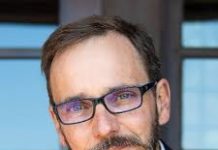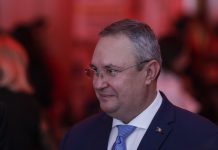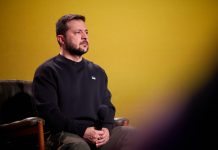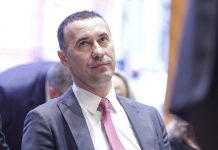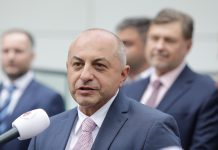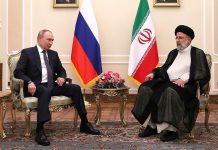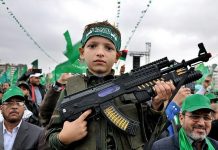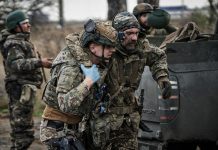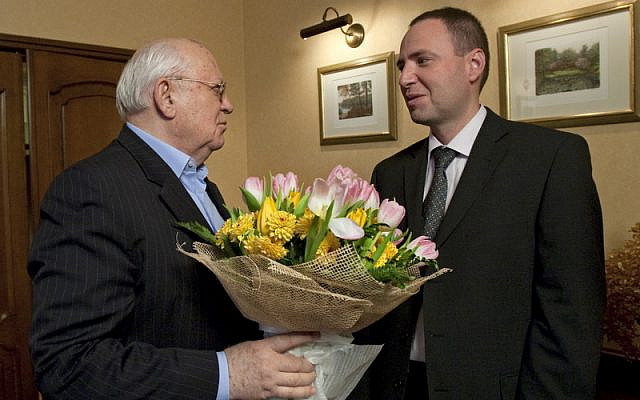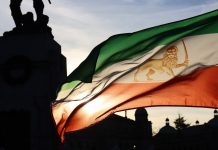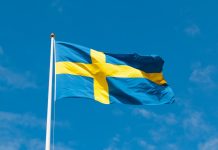Could it have been different with Russia? Was there a way to prevent the communist collapse from yielding the nightmare we are witnessing today? Many mistakes were made, but this is a case where the human factor seems dominant. I find myself contemplating an alternate universe in which Russia’s long-term leader was not Vladimir Putin, writes Dan Perry in a piece for The Times of Israel.
Boris Yeltsin it couldn’t have been: too erratic, wobbly and unwell for longevity. But what of Mikhail Gorbachev, who turned 91 just this past week? Thirteen years ago, I met the last leader of the Soviet Union for an interview that seems instructive in retrospect.
I had hoped to leverage a bureaucratic visit to Moscow to meet with Putin, who was already causing drama: the previous summer he invaded Georgia and figures displeasing to him were showing an alarming tendency to be poisoned in London sushi bars and shot in Moscow elevators. In perhaps a sign of things to come, the candidate Putin did not support in Ukrainian elections ended up after a dinner with his face dramatically disfigured.
Putin was, therefore, a busy man; no interview was possible. I consoled myself with the thought that Gorbachev was the more historically impactful (by now the gap has narrowed, it certainly must be said).
As we wound through scarily wide boulevards, beset on all sides by communist-era apartment blocks, the local AP staff prepared me for the encounter. Gorbachev had lost not only power but also glory, for reasons we shall examine – but he still required tribute. Luckily it was the week of his 78th birthday, offering us the opportunity of being nice to the former General Secretary without violating journalistic values and principles. I was supplied with a large bouquet by colleagues who then struggled to teach me how to greet him.
Sadly, although circumstances rendered me trilingual as a child (English, Hebrew and Romanian), as an adult I have proven more linguistically maladroit. Various travels in Russia had yielded just two phrases I could recall: “nyet rabota” (“does not work,” a phenomenon not uncommon) and “dobra ulitsa” (“a good road,” a phenomenon most uncommon). Teaching me a third risked greater difficulty than securing the interview itself.
Soon we were in the spacious but unassuming offices of the Gorbachev Foundation, a think-tank promoting “democratic values and moral, humanistic principles” (as well as Gorbachev himself). The great man was pushed in my direction. As with Yasser Arafat’s keffiyeh, the forehead birthmark made him instantly identifiable, even without Ronald Reagan by his side.
“Zdnyom razhdenia, Mikhail Sergeyevich!” I managed to say, forking over the flowers and experiencing a moment of angst. Did he understand? Was it all a prank? Could this be a Gorbachev impersonator? Spend long enough in journalism, and no scenario is too absurd.
Gorbachev beamed, handed the colorful bouquet to an aide and began to happily chatter away. I recognized what had happened: my polyglot childhood has enabled accent-feigning if not language-learning, misleading locals everywhere into thinking I can converse (this proved a particular vexation in Puerto Rico). A translator soon materialized, and the interview began.
I wanted to know about Putin, who had been handed the presidency by Yeltsin on Millennium Bug Day. In 2008, needing to get around term limits, Putin switched jobs with prime minister Dmitri Medvedev. Power magically shifted to the previously subservient premiership. As far as our reporters were concerned, it was Putin who invaded Georgia – not Medvedev. I asked the birthday boy: Could this really be an autocrat’s charade?
Gorbachev ripped into Putin’s “United Russia” party – the vehicle for his election “victories” and dominance of parliament. “It is a party of bureaucrats and the worst version of the CPSU” – the Communist Party of the Soviet Union. “Regarding our parliament, I cannot say that it is independent (and) also our judiciary does not fully comply with the provisions of the constitution.”
That sounded like freedom of speech, but I began to notice something else: Gorbachev limited his criticism to this SPAC-like skeleton of a political party and gave Putin a wide berth, despite my efforts to provoke him. You could see it in his eyes, which unlike Putin’s are expressive and human: Gorbachev, the man who brought down the Berlin Wall, was afraid of Putin.
Yet Gorbachev seemed to share something with Putin – a version of nostalgia for Ruskiy Mir, the profoundly resonant notion of a Russian-speaking world that is unified and distinct. “I was a resolute opponent of the breakup of the union,” he said, expressing hope that Ukraine, Kazakhstan and Belarus will reestablish a new union with Russia.
That idea is, in my experience, widely held in Russia. Many people feel that a regional zone of influence is their due as a military and cultural empire (even truncated, Russia’s territory spans 11 times zones, albeit much of it in the form of ice).
The national diminishment played a big part in Gorbachev’s political impotence since being forced to step down on Dec. 25, 1991 (by Yeltsin and angry crowds backed quietly by the state apparatus). Too much happened all at once: the economic system was cancelled, the Warsaw Pact (linking eastern Europe to Russia) was erased, and the Soviet Union, the very manifestation of beloved Ruskiy Mir, vanished without even a single puff of smoke.
Then came the triumphalist West. First it pushed (via the IMF and economists like Jeffrey Sachs) for a blitzkrieg transition to capitalism – even though it should have been clear that state assets (meaning almost all important assets) would be looted, the currency would collapse and the savings of a generation would evaporate. Then it began to offer NATO membership to Russia’s former dominions, but not to Russia itself. Combine this level of wisdom and generosity with Russia’s own history – not a day of decent government from Kaliningrad to Kamchatka – and the odds are high that you get Putin.
Gorbachev would have been different, I think. There would have been less of a violent privatization yielding “oligarchs,” no fake courts jailing the opposition, no poisonings or invasions. There would have been more democracy, but as he suggested in our talk, perhaps less capitalism as well.
“Now everyone is learning a hard lesson,” he said, alluding to the Great Recession. “It is necessary to overcome these mistakes of super-consumerism, of super-profits. We have to think about finding … new models of development (and) cooperation.” He liked the mix of “all that the capitalist system brings, like competitiveness, and what socialism gives – especially a social safety net.”
I noted that he had not been shy about tapping capitalism when it came to profit for himself – I mean for the foundation – and mentioned the Louis Vuitton ad he had starred in a year or two before. Gorbachev’s face lit up and he name-dropped another ad as well: “Pizza Hut!” He asked if we might organize some more. You never know when people are serious.
History has rendered Gorbachev something of a wistful figure, which seems odd for a communist dictator who shut down the communist empire. What global appreciation this man had enjoyed! But in Russia, that and 6000 rubles will buy a cup of coffee.
I remember looking at him and thinking of the Hebrew phrase “ein navi be-iro,” which actually comes from words attributed to Jesus in Matthew 13:57: “Only in his hometown and in his own household is a prophet without honor.” Odd to think such a thing of a presumably avowed atheist.
As if reading my mind, he put it this way: “Personally, as a politician, I lost. But the idea that I conveyed and the project that I carried out, it played a huge role in the world and the country. … We have gone far, and there’s no return.”
No return? In the interview story I passed on those words uncritically, assessing that it was true. As Putin destroys any hope of democracy in Russia, ravages Ukraine, and spreads fear and upheavals far across the globe, I am no longer quite so sure.
We’d better hope Gorbachev was right, though. Optimism can make you seem naïve. But armies have marched on little more than this.


